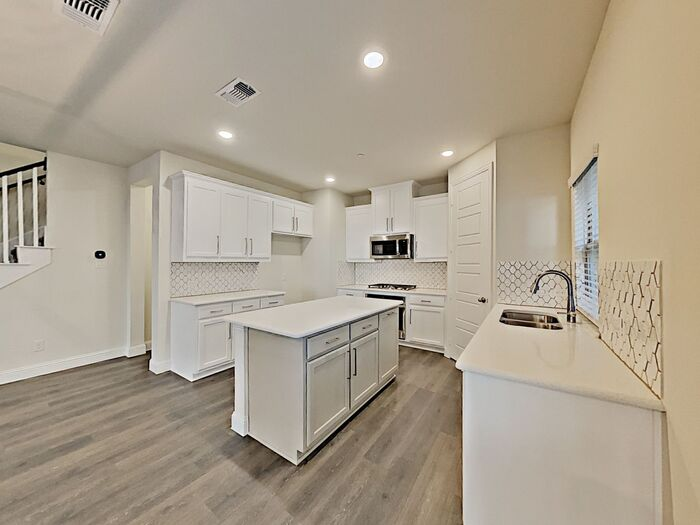Not All Pets Are Purr-Fect—Here's Why You Need to Screen Them
As a property investor in Garland, you want to get the most out of your investment property portfolio. Building your wealth means doing anything you can to boost your rental income. Whether you love the idea or not, an expert property management team in Garland will tell you that allowing pets in your investment properties can help you make more money.
Pet owners are excellent tenants. When they find a rental home that allows pets, they love to stay—as long as landlords accept them and their companions. Tenants who renew their leases are the engine that drives your investment portfolio—but it's critical to be careful about the pets you allow into your properties.
Here's what expert property managers want investors to know about screening pets for your rental properties.

Why Do You Need Pet Screening?
You don't want the wrong tenants in your rental properties. When placing your next tenant, landlords know the value of putting each applicant through a thorough screening process. Without screening tenants, you open yourself up to bad tenants who don't pay the rent and damage your investments. The same applies to pets.
While pets don't pay the rent, they can still cause damage (and other issues) when living in your property. When allowing a pet owner in your rental, you need to vet the pet along with the owner.
The Wrong Pets
The wrong pets are animals you aren't comfortable having in your rental homes. Those animals can include:
- Large dogs
- Exotic pets
- Certain breeds of dogs, cats, or other animals like ferrets.
Be careful not to discriminate against specific animals and owners. If you don't want giant snakes, raccoons, flamingos, or Saint Bernards living in your rental property, make sure you document that criteria before you begin screening pets.
The Right Pets
The right pets for your rental properties are the animals who pass your screening process. Pet owners must also follow the rules to remain in your properties.
- Set weight and age restrictions for dogs and cats. If you're worried about the damage that can come from puppies and kittens, the age restriction is especially relevant.
- Restrict the number of pets a tenant can have in your rentals.
- Document pet policies and contract addendums before allowing a pet in your properties.
- Charge pet owners a pet deposit separate from their security deposit, and consider charging "pet rent" as well.
- Make sure your pet-owning tenant understand fees or consequences if their pet causes damages or if the owner doesn't abide by the rules.
Don't be so strict with your pet allowances and exclusions that you reduce your options for good pet owners as tenants. You might not like the idea of pet hair or the potential for scratches to your floors and walls. However, the pet deposit and your screening process should help minimize the potential for serious pet problems.

How Do You Screen for the Right Pets?
When you've documented what you do and don't want when allowing pets in your properties, work with your expert property management team to develop a screening process.
Pet owners must provide required information to you about their pet. Be sure you request the same information from all applicants with pets to avoid any appearance of discrimination.
Showing bias for or against a specific animal (regardless of your process and criteria) can be interpreted as discrimination toward the pet owner. Landlords must avoid any discriminatory practices when screening pets and their people.

The Information You Need
All pet owner applicants should provide information about their pet's history and health. This includes:
- The pet’s name, breed, age, weight, and gender.
- All prior addresses where the owner has lived with the pet (two years of history).
- A behavioral history, including noise complaints and reports of bites or attacks.
- The vet's name, contact info, and visit history.
- Include records of exams, vaccinations, and any additional treatments or health issues.
- Confirmation that the pet is house trained.
If you're working with a property management partner in Garland, they'll take the information and confirm it with the vet and prior landlords. If any of this information violates your pre-set criteria, you can consider denying the pet.
Beware the Exception
Service animals are the exception to your rental property pet policies. The Fair Housing Act requires landlords to accept service animals that do a specific task for their owners.
Most service animals are highly-trained, excellent pets, and these animal owners are often excellent tenants. Work with these tenants to make sure the property is a good fit for them and their service animals.

Don't Pause Over Paws!
If dealing with pets for your investment properties in Garland concerns you, let your expert property management team handle the pet screening process. You'll appreciate the potential boost to your income and reduced tenant turnover without having to deal with any fur or fluff.
RentHub Property Management knows how to find the right pets—and pet owners—to give your investment properties an edge over the competition.
We can work with any of your properties to get them pet-ready, and we'll guide you through repairs for pet-related damage. Whether you're adding a new property in Garland to your portfolio, or you want more from your current properties, let us help you take those next steps to grow your long-term wealth!
Contact Us







